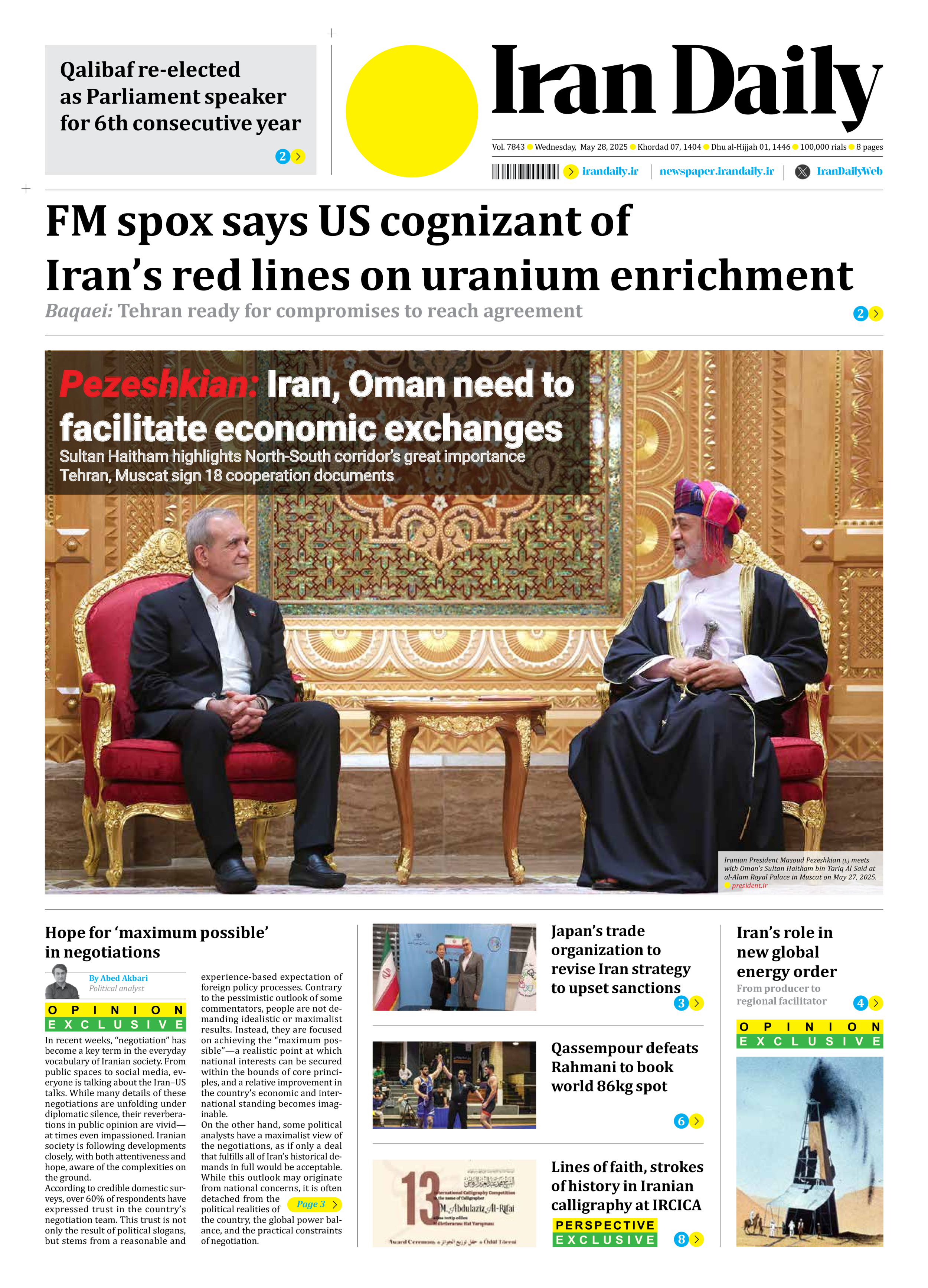
Hope for ‘maximum possible’ in negotiations
By Abed Akbari
Political analyst
In recent weeks, “negotiation” has become a key term in the everyday vocabulary of Iranian society. From public spaces to social media, everyone is talking about the Iran–US talks. While many details of these negotiations are unfolding under diplomatic silence, their reverberations in public opinion are vivid—at times even impassioned. Iranian society is following developments closely, with both attentiveness and hope, aware of the complexities on the ground.
According to credible domestic surveys, over 60% of respondents have expressed trust in the country’s negotiation team. This trust is not only the result of political slogans, but stems from a reasonable and experience-based expectation of foreign policy processes. Contrary to the pessimistic outlook of some commentators, people are not demanding idealistic or maximalist results. Instead, they are focused on achieving the “maximum possible”—a realistic point at which national interests can be secured within the bounds of core principles, and a relative improvement in the country’s economic and international standing becomes imaginable.
On the other hand, some political analysts have a maximalist view of the negotiations, as if only a deal that fulfills all of Iran’s historical demands in full would be acceptable. While this outlook may originate from national concerns, it is often detached from the political realities of the country, the global power balance, and the practical constraints of negotiation.
Page 3







